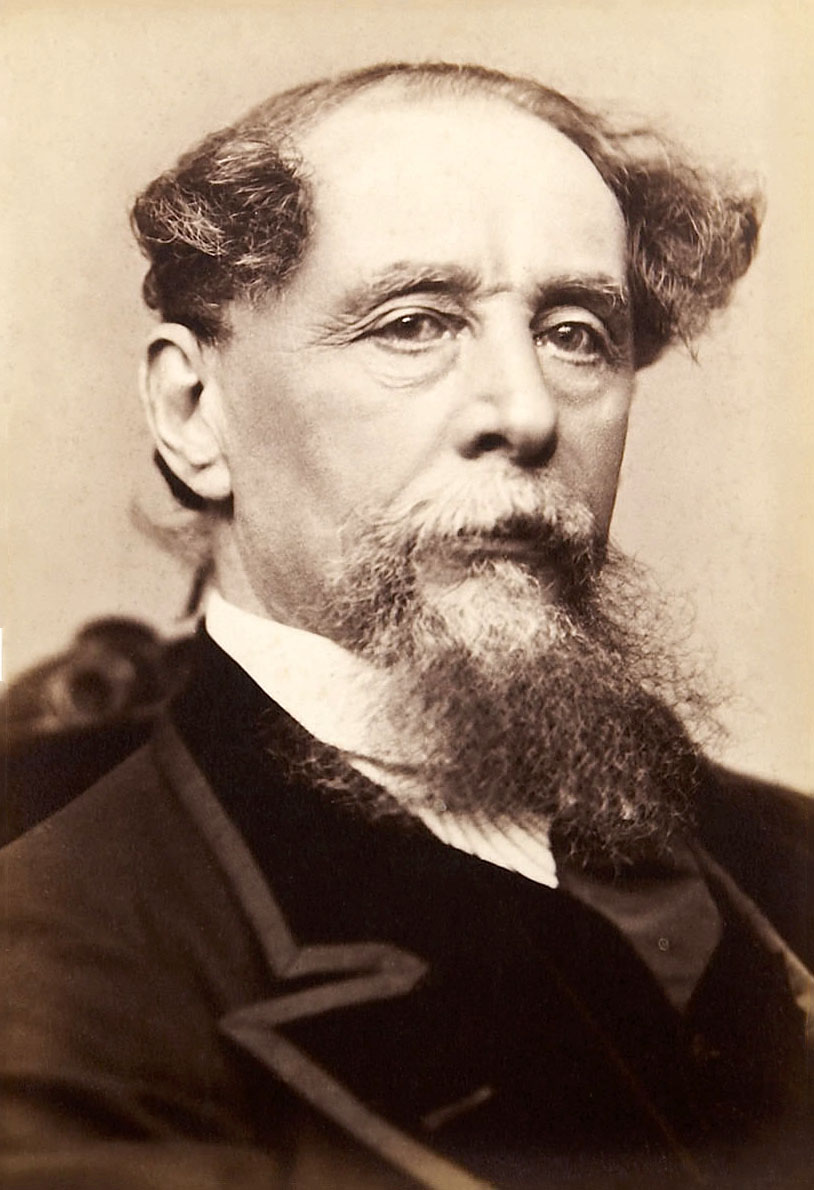Frases célebres de Charles Dickens
“Cada fracaso enseña al hombre algo que necesitaba aprender.”
Fuente: [Martín Cuadrado], Ana M.ª; Domingo J. [Gallego Gil], Catalina M. [Alonso García]. El educador social en acción: de la teoría a la praxis. Editorial Universitaria Ramon Areces, 2010. ISBN 9788480049832, p. 323. https://books.google.es/books?id=eWSnDAAAQBAJ&pg=PA323&dq=Cada+fracaso+ense%C3%B1a+al+hombre+algo+que+necesitaba+aprender.+Dickens&hl=es&sa=X&ved=0ahUKEwirn-b43O7gAhUxyIUKHUTzB0sQ6AEIODAD#v=onepage&q=Cada%20fracaso%20ense%C3%B1a%20al%20hombre%20algo%20que%20necesitaba%20aprender.%20Dickens&f=false
Frases de hombres de Charles Dickens
Charles Dickens Frases y Citas
“El hombre nunca sabe de lo que es capaz hasta que lo intenta.”
Fuente: [Amate Pou] (2017).
“El sol es débil cuando se eleva primero, y cobra fuerza y coraje a medida que avanza el día.”
Fuente: "Vieja tienda de curiosidades" - Charles Dickens
“Si no hubiera malas personas, no habría buenos abogados.”
Citas por obra, La tienda de antigüedades/The Old Curiosity Shop (1840-1841)
Original: «If there were no bad people, there would be no good lawyers».
Fuente: [Neely], Robert Donald (en inglés). The Lawyers of Dickens and Their Clerks, pp. 7, 26-7. The Lawbook Exchange, Ltd., 2001. ISBN 1584770910, 9781584770916. https://books.google.es/books?hl=es&id=P6VcYW39Pr4C&q=grovelling#v=snippet&q=grovelling&f=false En Google Books. Consultado el 2 de noviembre de 2019.
“Eran los mejores tiempos, eran los peores tiempos…”
Primera frase de la obra
Citas por obra, Historia de dos ciudades (1859)
Original: «It was the best of times, it was the worst of times...».
Variante: «No ha habido tiempos mejores ni peores;...».
Variante: «Érase el mejor de los tiempos y el más detestable de los tiempos; [...] la primavera de la [esperanza] y el invierno de la desesperación. Todo lo poseíamos y nada poseíamos».[Sin fuentes]
Fuente: [Anderson], Hephzibah (en inglés). «What are the best first lines in fiction?» http://www.bbc.com/culture/story/20191022-what-are-the-best-first-lines-in-fiction BBC Culture. Consultado el 30 de octubre de 2019.
Fuente: Historia de dos ciudades, 1859.
Fuente: [Dickens], Charles (trad. A de la [Pedraza]). Historia de dos ciudades. ALBA Editorial, 2016. ISBN 848428736X, 9788484287360. https://books.google.es/books?id=rmu-wk-lEgIC&printsec En Google Books. Consultado el 30 de octubre de 2019.
Fuente: [Dickens], Charles. Historia de dos ciudades. Penguin Random House Grupo Editorial España, 2010. ISBN 8420492124, 9788420492124. https://books.google.es/books?id=V5SF8y4lVpIC&pg En Google Books. Consultado el 30 de octubre de 2019.
Charles Dickens: Frases en inglés
About having a book
Letter to Mrs. Richard Watson (7 December 1857)
“Ask no questions, and you'll be told no lies.”
Fuente: Great Expectations (1860-1861), Ch. 2
All the year round, Vol.15 (1876), p. 281
“That vague kind of penitence which holidays awaken next morning.”
Fuente: The Old Curiosity Shop (1841), Ch. 40
Hunted Down http://www.gutenberg.org/dirs/etext97/hntdn10.txt (1859)
“She's the ornament of her sex.”
Fuente: The Old Curiosity Shop (1841), Ch. 5
“in a private letter to letter to Emile de la Rue on 23 October 1857”
You know faces, when they are not brown; you know common experiences when they are not under turbans; Look at the dogs - low, treacherous, merderous, tigerous villians
I wish I were Commander in Chief over there ! I would address that Oriental character which must be powerfully spoken to, in something like the following placard, which should be vigorously translated into all native dialects, “I, The Inimitable, holding this office of mine, and firmly believing that I hold it by the permission of Heaven and not by the appointment of Satan, have the honor to inform you Hindoo gentry that it is my intention, with all possible avoidance of unnecessary cruelty and with all merciful swiftness of execution, to exterminate the Race from the face of the earth, which disfigured the earth with the late abominable atrocities"
Charles Reade, A Simpleton (1873)
Misattributed
“Not to put too fine a point upon it.”
Fuente: Bleak House (1852-1853), Ch. 11, 19, 22
American Notes online at Project Gutenberg http://www.gutenberg.org/cache/epub/675/pg675.html
The Chimes http://infomotions.com/etexts/literature/english/1800-1899/dickens-chimes-379.txt, Second Quarter (1844)
“It is a melancholy truth that even great men have their poor relations.”
Fuente: Bleak House (1852-1853), Ch. 28
Fuente: Great Expectations (1860-1861), Ch. 17; Pip describes Molly, Mr. Jaggers' housekeeper
Fuente: Sketches by Boz (1836-1837), Ch. 1 : The Streets — Morning
